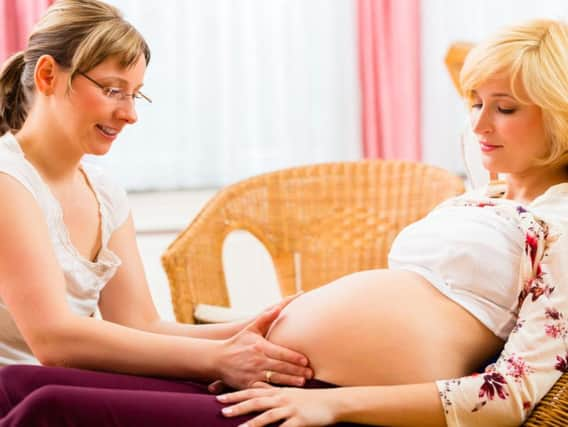Extra 3000 midwives not enough to protect women, experts warn


Government plans to train thousands of extra midwives is still not enough to fully protect women and babies during labour, it is being claimed.
The health and social care secretary, Jeremy Hunt, recently announced moves to train more than 3000 extra midwives over the next four years.
He has also unveiled plans for women to have access to the same midwife throughout pregnancy, labour and birth.


But while the move has been welcomed by the Royal College of Midwives (RCM), the organisation has also expressed concern that it will take until 2022 before all the new trainees are fully qualified.
And there is concern that the pledge for women to have a dedicated midwife is “too ambitious”.
Responding to the government announcement, Gill Walton, chief executive and general secretary of the RCM, warned: “It will not transform maternity services right now.
“It will take seven or eight years before all of the new midwives announced will be actually working in our maternity services.”
Now her concerns have been echoed by a leading medical negligence solicitor who specialises in birth injury and trauma.
Diane Rostron, who has seen first-hand the consequences of substandard maternity services, said: “The NHS’ commitment to increasing the number of trained midwives by 25 per cent is good news. However, much more needs to be done to ensure that all women receive the appropriate level of medical care during pregnancy and birth.
“In my 20-plus year career of representing families who have suffered significant, and avoidable, physical and psychological birth injuries or trauma , I have found that the errors made have not been due to a lack of midwives.
"My clients, and their families, have suffered due to medical staff failing to appropriately monitor the foetus during labour and birth for example, or failing to respond appropriately or in a timely fashion, leading to preventable severe injuries or even baby deaths.”
The pledge to provide the majority of women with care from the same midwife throughout pregnancy, labour and birth by 2021 was also described as “ambitious” by the RCM leader.
She said: “The priority for all maternity services is ensuring that every woman has a named midwife during pregnancy and one-to-one care in labour. This is what maternity services are currently struggling to provide universally and consistently and this is why the new staff will be so crucial.
“When services are confident of this then they can move on to greater continuity of care for women,” she added.
DianeRostron, who leads a team of birth injury specialists, said: “Providing enough midwives so that women have continuous care throughout their pregnancy and birth will make a big difference to many.
“Ensuring continuous training and support for all midwives to limit incidence of avoidable conditions such as cerebral palsy and other birth injuries is also needed.”
For more information on birth injuries and trauma caused by medical negligence, visit www.dianerostron.co.uk/